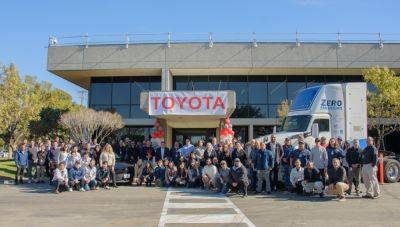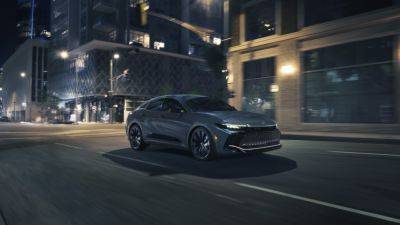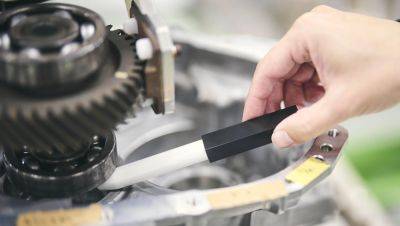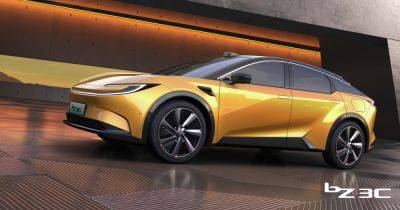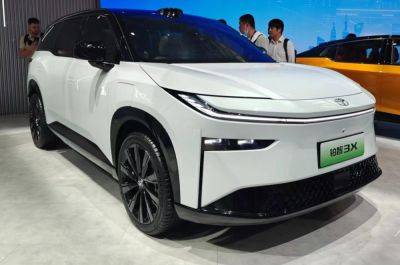Here's Why the Toyota Camry Is Hybrid Only
Perhaps the most important thing about the new Toyota Camry is its hybrid drivetrain. It’s the only one available, with conventional four-cylinder and V-6 options dead for 2025. It’s a big deal, yet for Toyota, a natural step.
“It’s just the right vehicle at the right time,” Mark DeJongh, the Camry’s chief engineer, tells Motor1, “and we really think the customers are going to embrace it. The fuel economy is so great, and we knew with the new [Toyota] Hybrid System 5, we really had an opportunity to tune that drivetrain and get it to where it could be great.”
THS 5 is, naturally, the fifth generation of the Toyota Hybrid System that debuted with the Prius back in 1997. To give a very basic overview, THS centers around two electric motor-generator units (MGUs). MGU1 works as a starter for the engine and a generator for the battery; MGU2 is a larger motor that can drive the wheels either with or without the engine. In all-wheel drive Camrys, these are augmented by an additional electric motor that drives the rear wheels.
Whereas the Prius uses a 2.0-liter four-cylinder, the Camry uses a 2.5-liter four-cylinder evolved from the previous Camry hybrid. It now makes 184 horsepower and 163 pound-feet of torque. DeJongh talks a lot about finding efficiencies wherever possible, and for the engine, that resulted in switching from 0W-16 oil to an astonishingly light 0W-8. The Camry also has a slightly smaller lithium-ion battery with just 1.0 kWh of capacity, but it now delivers more power than before. System output for the new Camry is 225 hp. The all-wheel drive Camry develops 232 hp.
The most-efficient model, the LE FWD, sitting on its 16-inch wheels, manages 51 mpg combined. Whereas the least efficient, the XSE AWD returns 44 mpg. It’s a figure we easily beat on our drive route.
DeJongh says that, “[O]nce we decided to go 100-percent hybrid, we almost forgot we were going 100-percent hybrid. It just didn’t become a thing anymore.”
It speaks to where Toyota and its customers are. The Japanese giant didn’t go all-in on EVs, instead pushing hybrid models, and it came at the right time. As backlash to EVs grows, so too does consumer interest in hybrids. Going hybrid is a


